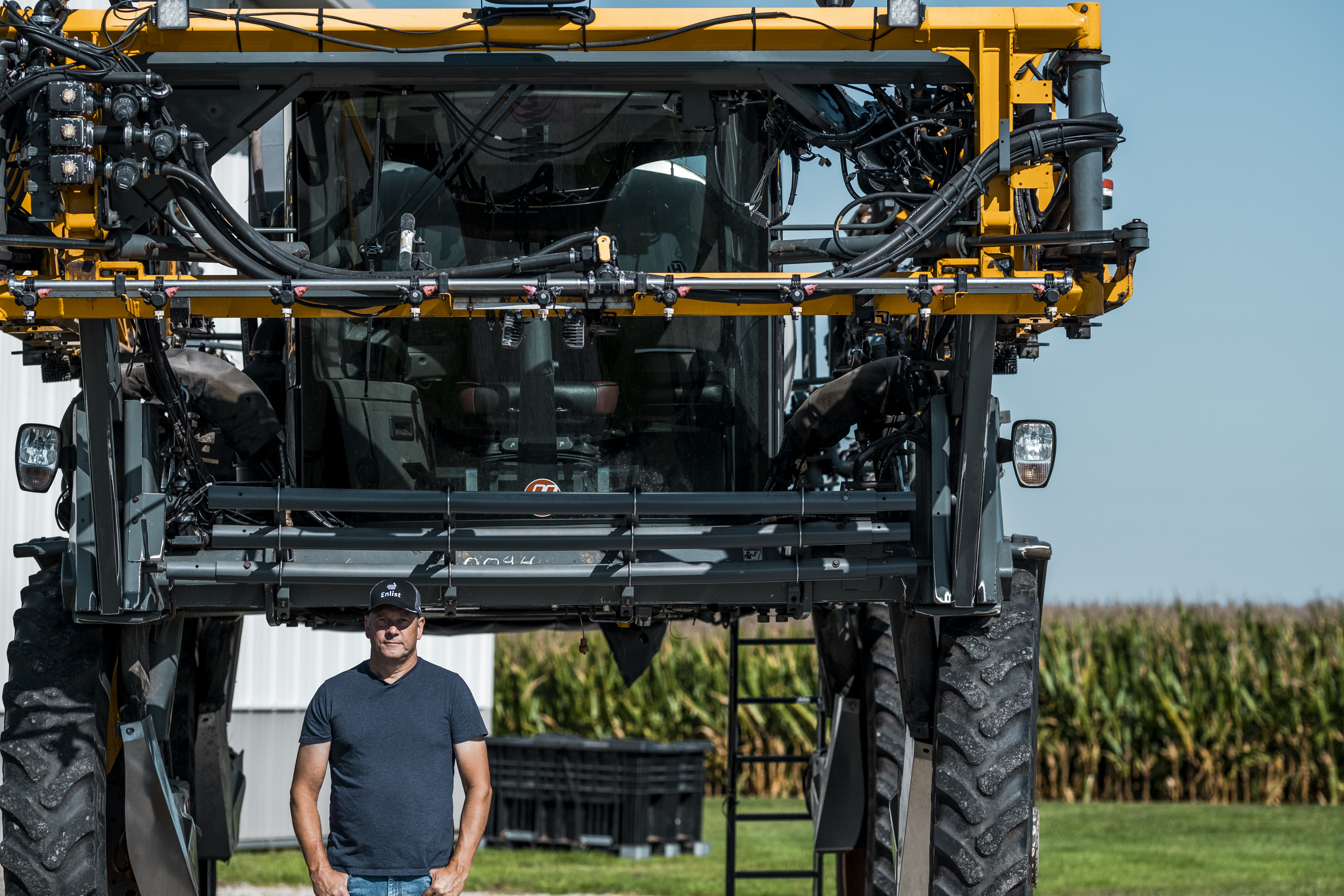Paul Butler, Illinois
When Paul Butler sets his eyes on the prize, he’s all in. Since 2003, he’s been running his row-crop farm in Macon, Illinois, with the same all-in attitude he applies to all aspects of his life — from marathoning to beekeeping.
When Paul Butler sets his eyes on the prize, he’s all in. Since 2003, he’s been running his row-crop farm in Macon, Illinois, with the same all-in attitude he applies to all aspects of his life — from marathoning to beekeeping.
Paul Butler is the first to admit that he’s got somewhat of an obsessive personality.
But it’s a trait that serves him well whether he’s running marathons or growing row crops on his farm in Macon, Illinois. It drives him to always be better. And when Butler saw what weed resistance was doing to his fields, he knew he had to take action.
“I don’t enjoy doing things halfway. My uncle was a marathoner, and one day when I was in high school, he said, ‘Let’s go run.’ And we ran 6 miles that day. I couldn’t walk the next day, but I was hooked,” Butler says. “Six months later, I did my first half-marathon and, a year later, started doing full marathons.”
Butler has since run more than 50 marathons, including the Pikes Peak Marathon, hiked the Grand Canyon twice, and is planning next year to climb both Mount Whitney, the highest mountain in the contiguous United States, and the Sierra Nevada mountains.
“I can’t imagine not having something to do,” he says.
When he’s not running marathons or hiking mountains, Butler has a career in computer science. On his farm, he grows corn and soybeans. He also manages an apple orchard and beehives for a growing meadery.
He’s always got a lot on his plate. And whatever is on his to-do list, he gives 100%.
“I don’t think you can be partly loyal. You either have to be all in or not in at all,” he says. “When I think of what I’m loyal to, a certain tool brand or seed brand, I’m going all in. Why would I switch to something else?”
For years, that’s where Butler was when it came to using a dicamba-based weed control system.
Now, the Enlist® weed control system gets Butler to the finish line each season with clean fields, with the yield he needs and without the stress he doesn’t. It’s why he went all in and hasn’t regretted it. But how did someone so loyal reach the point of making a switch?
For Butler, better weed control didn’t always mean chemical control. Before the Enlist system, when his previous weed control system left him wanting, he even found himself cleaning up his fields the old-fashioned way.
“I think the a-ha moment for me was out there chopping weeds to clean up my buffer strips and it was 100 degrees,” he chuckled. “That was awful, I knew I needed a change.”
After sweating through his ball cap and chatting with his neighbor, who he shares a sprayer with, Butler began looking for a better way to tackle waterhemp and marestail. It was his neighbor who suggested the Enlist system.
While Butler wants to protect his own crops and the bees that buzz around his farm, his neighbors are never far from his mind. Butler saw superior results in his neighbor’s field and a way to decrease time spent on sprayer cleanout, so he took a shot on the Enlist system for himself.
“We were thrilled with not having setbacks and thrilled with not having to worry about damaging my neighbors’ beans when the wind was blowing on the days I needed to spray,” he says. “Drift really concerns me. With the Enlist system, that has been much less of a worry.”
With herbicide-resistant weeds ever-evolving, the efficacy the Enlist system provides meant no more chopping weeds. Resistance has only gotten more complex over time, and it’s here to stay, he says.
“I can see the industry’s changed. When I started farming in 2003, lots of farmers relied on only one or two modes of action to do everything. It’s got a lot more complex,” he says. “Resistance is in our industry now. Everyone’s trying to do a better job managing it.”
Marestail- and waterhemp-free fields and no cutoff dates or drift concerns were certainly a win for Butler, but the yields he saw were the real champion result.
“The last two years, we’ve had the best yields we’ve ever had,” Butler says. “I was so happy with that first year that we planted 100% Enlist the second year. I was thinking that was just going to be a one-time thing, but our fields were really clean, so we went 100% again. Now we’ve covered all our acres.”
From running marathons and climbing mountains to making sure his farm is the best it can be, Butler isn’t one to do anything halfway and doesn’t plan to start anytime soon.
“I have an obsessive personality, so I’m always thinking about something. It’s either fitness or farming — I’m just 100% on everything,” he says.
Always read and follow label directions.

Problem weeds: Waterhemp, marestail
Management practices: No-till, 10- to 15-inch rows